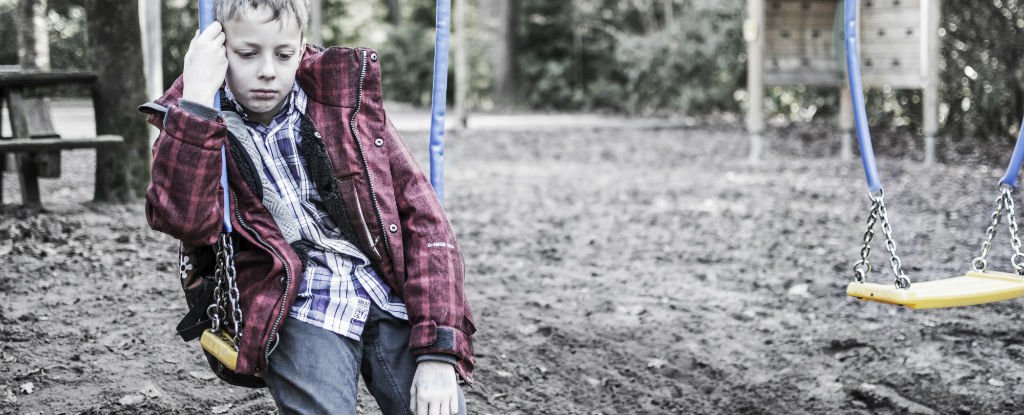
Take a moment to think of all of your friends. Are they 2, 5, 10 or more? No matter how many they are, the thing is that when you call someone a "friend", you automatically believe that you are their friend too, right? Friendship is a reciprocal thing - or not?
Well, a recent study has found that this is probably only true about 50 percent of the time - only half of perceived friendships are actually mutual, and that’s a problem.
Conducted by researchers from MIT, the study analysed friendship ties in 84 subjects aged 23 to 38, who were taking part in a business management class.
The subjects were asked to rank how close they were with each person in the class on a scale of 0 to 5, where 0 means "I do not know this person," 3 means "Friend," and 5 means "One of my best friends."
The researchers discovered that while 94 percent of the subjects expected their feelings to be reciprocated, only 53 percent of them actually were.
The study is of course limited because of its tiny sample size, but as Kate Murphy reports for The New York Times, the results are consistent with data from several other friendship studies from the past decade, comprising more than 92,000 subjects, that put reciprocity rates at 34 to 53 percent.
This perception gap when it comes to friendship hints at a number of pretty significant problems, from our inability to clearly define friendship and the impact this could have on our own self-image, to us having the wrong idea about the kind of people who could actually affect social change.
While one of the team, computational social science researcher Alex Pentland, suggests that this inability to read people is largely due to us desperately trying to maintain a favourable self image - "We like them, they must like us." - the concept of friendship is actually really difficult to define.
"Ask people to define friendship - even researchers like Mr Pentland who study it - and you’ll get an uncomfortable silence followed by 'er' or 'um,'" says Murphy.
It wasn’t always this hard. When we’re kids, the concept of friendship is pretty simple, as the kids from everyone’s new favourite show, Stranger Things, spell out:
- A friend is someone that you'd do anything for.
- You lend them your cool stuff, like comic books and trading cards.
- They never break a promise.
And, most significantly, "Friends don’t lie."
But in adolescence through to adulthood, things aren’t so simple - especially when we’ve got social media pushing friendship as a commodity, which is pretty much the exact opposite of how you’re supposed to think of them.
"Treating friends like investments or commodities is anathema to the whole idea of friendship," Ronald Sharp, a professor of English at Vassar College, who teaches a course on the literature of friendship, told Murphy. "It’s not about what someone can do for you, it’s who and what the two of you become in each other’s presence."
Sharp adds that for many of our friendships, we spend way more time tweeting at each other than actually hanging out with them, and this is how perceptions can get seriously skewed.
"People are so eager to maximise efficiency of relationships that they have lost touch with what it is to be a friend," he says.
But hey, it’s not all bad news. If you cut your friends by half and end up with five true pals who really do love you back, you’re exactly where you’re supposed to be, says renowned British anthropologist, Robin Dunbar.
According to a recent study led by Dunbar, while 150 is the maximum number of social relationships the average human can maintain with any degree of stability, we're only able to maintain a mere five close friendships at a time.
"People may say they have more than five but you can be pretty sure they are not high-quality friendships," he told The Times.
So don’t sweat it if your friend lists on social media aren’t as massive as your friends - chances are most of us are actually pretty equal when it comes to real friendships.
And don’t believe what you hear about the people with the biggest following having the most influence, because what’s the point when half of them aren't likely to be reciprocated?
"We shouldn’t assume people with a high number of social ties are 'influencers'," Pentland writes for the Harvard Business Review. "Such people are no better, and often are worse than average people at exerting social influence. Our results suggest that this is because many of those ties either are not reciprocal or go in the wrong direction, and therefore won’t lead to effective persuasion."
So if you’re looking for someone who can influence others and affect social change, says Pentland, don’t look for one individual with lots of friends, look for groups of people with a similar number of friends, and lots of friends in common. Because their connections are going to be a whole lot more real than anything in Kim Kardashian's feed.
The study has been published in PLOS One.
Written by Katerina Papakyriakopoulou
Related:
- Why Smarter People are Happier with Fewer Friends
- 15 Funny Pictures That Illustrate The Basic Differences Between Friends And Best Friends
- Staying Friends With An Ex Is The Worst Idea EVER, Says Science
- Loners Tend To Be More Intellectual And Loyal Friends
- Is It A True Friendship? 5 Signs To Help You Find Out
- The Four Types Of Friends According To The Buddha
- Social Science Says Lasting Relationships Come Down To 2 Basic Traits














http://www.lastscience.net/2016/09/thats-why-intelligent-people-have-very.html
ReplyDeleteMeanwhile this kind of people are veri intellegents